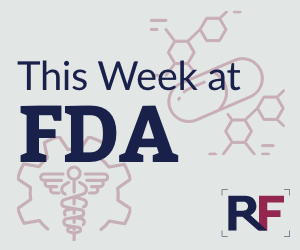This Week at FDA: FDA’s budget justification, Nurtec ODT recall, and more
 APIsBiologics/ biosimilars/ vaccinesBiotechnologyCombination products/companion diagnosticsDiagnostics/IVDsMedical DevicesNorth AmericaNutritional/Natural HealthOTCOtherPharmaceuticalsRegulatory Intelligence/Policy
APIsBiologics/ biosimilars/ vaccinesBiotechnologyCombination products/companion diagnosticsDiagnostics/IVDsMedical DevicesNorth AmericaNutritional/Natural HealthOTCOtherPharmaceuticalsRegulatory Intelligence/Policy